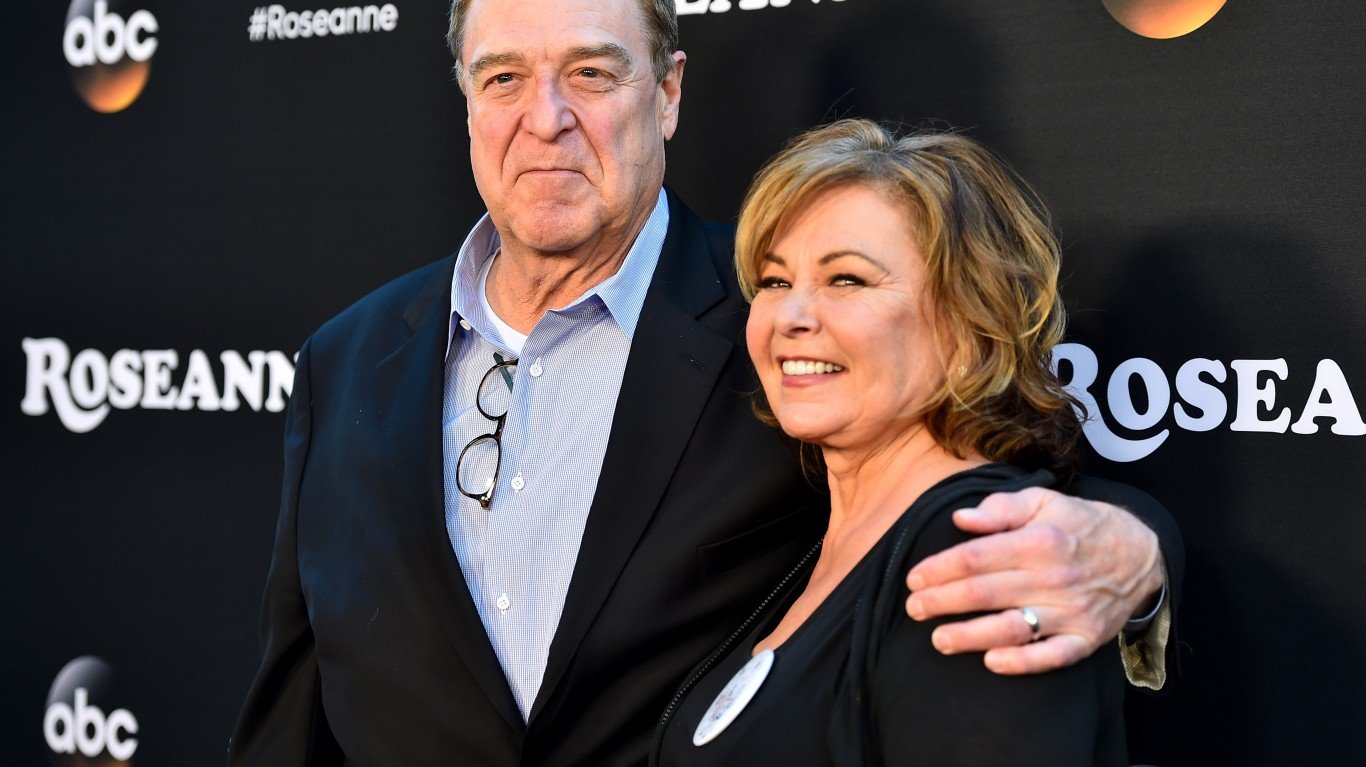

Apple Inc. (NASDAQ: AAPL) saw its shares react positively to the fresh announcements about the iPhone 11, the updates to the smartwatch and iPads, and specifically on its upcoming launch of the Apple TV+ service. Many firms have chimed in on how this service is going to be (or might not be) disrupting to the existing streaming and media services out there.
Specifically, Apple is targeting the likes of the Netflix Inc. (NASDAQ: NFLX) and Walt Disney Co. (NYSE: DIS) streaming services. Roku Inc. (NASDAQ: ROKU) also slid lower by about 10% on the day of the announcement.
Making the Apple TV+ free with new iPhone purchases may drive iPhone demand higher while the fears over U.S./China tariffs also may drive demand. Still, there are many moving parts and it is way too soon to determine if the potential losers actually will lose. Of course, it’s always possible that none of the major targets in the streaming media space get hurt if consumers just decide they can afford all the services.
24/7 Wall St. has tracked multiple research calls and we have shown how shares reacted to Tuesday’s launch. It was hard not to notice that the 1.6% gain in Apple shares to $220.25 had it back above $975 billion in market capitalization.
Credit Suisse has only a Neutral rating on Apple, with a $200 target price. The firm’s view on Apple’s media and product announcements was that they featured only incremental iPhone enhancements with three-camera enhancements and it sees the replacement cycle continuing to extend ahead of 5G coming in the second half of 2020. The two biggest surprises for the firm were the $699 entry price on the iPhone 11 and the very attractive pricing of $4.99 for TV+. Credit Suisse sees these efforts as being a way to grow the subscriber base for the long term rather than worrying about maximizing near-term profitability. All in all, Credit Suisse believes Apple is likely to remain range-bound from another lackluster iPhone cycle and the ongoing overhang from the U.S./China trade dispute.
Wedbush Securities reiterated it as Outperform with the same $245 price target on the heels of the iPhone 11 launch and release of new products from the prior day. The focus on the Apple TV+ services was a key point about it targeting other media offerings. Daniel Ives said of the price launch:
The pricing of Apple’s streaming TV service at $4.99 per month is a “show stopper” and a major shot across the bow at the likes of Netflix and Disney among others. The Street was anticipating a $7.99-$9.99 price point as clearly Cupertino is looking for market share coming out of the gates with these surprising price points that we loudly applaud. In our opinion with an installed base of 900 million active iPhones worldwide we believe Cook & Co. have an opportunity to gain 100 million consumers on the streaming front in the next 3-4 years.
Ives also talked up the iPhone upgrade cycle and demand ahead, but also warned about the pressure that it is in the crosshairs of the trade war. His report said:
With roughly 1/3 of the company’s 900 million active iPhones globally currently in a “window of an upgrade opportunity” over the next 12 to 18 months Cook & Co. recognize this is a crucial product cycle on the horizon that we believe could translate into roughly 180 million iPhone units sold in FY20. Based on our recent Asia checks, we believe Apple’s supply chain is planning on 75 million units for the initial iPhone 11 launch period, which is a slight uptick vs. its prior iPhone cycle last fall which we believe will be supported by the lower priced base iPhone 11. We note there is capacity in the supply chain to bring this launch period unit range production up to 80 million iPhones depending on the level of pent up demand/pre-order activity starting in mid-September.
Merrill Lynch reiterated its Buy rating and raised its price objective to $250 from $240. The firm’s Wamsi Mohan put the iPhone launches and the Apple TV+ launch in perspective against other companies:
Perhaps the biggest surprise at the event was monthly price for Apple TV+ service which was set at $4.99/month which is lower than we expected which makes it more attractive and can drive higher number of subscribers. Apple is including 1 year of Apple TV+ service with any purchase of a new iPhone, iPad, iPod touch, Mac or Apple TV which should help promote the service. We recognize the limited content at launch but Netflix launched 13 original shows in 2013 (not dissimilar to Apple’s launch) and Apple can build content by deploying capital. Apple spends $60 billion in buybacks in one year which exceeds the total amount spent by Netflix on original content cumulatively since launch.
CFRA maintained its Buy rating and talked up the iPhones and TV+ services:
Its Apple TV+ is launching November 1 at $4.99 (below our $9.99 view) and could be bundled with a device purchase, demonstrating the power of its ecosystem. We think the lower iPhone 11 price point and trade-in program will help promote upgrades, specifically in China, while the Apple Arcade and TV+ offerings will help accelerate services growth.
Zacks currently has only a Hold rating on Apple, but the firm outlined how wide the distribution of its streaming services will be. Their analysis said:
Initially, the service will be available in 100 countries on Apple platforms such as iPhone, iPad, Apple TV 4K, Apple TV HD, Apple TV (3rd generation), iPod touch and Mac. Apple TV+ is expected to be launched soon on Apple TV app in selected 2018, 2019 and newer Samsung smart TVs, Amazon Fire TV, LG, Roku, Sony and VIZIO platforms. … Apple TV+ is likely to gain pricing advantage over streaming competitors including Disney and Netflix. Disney+ streaming service, expected to be launched on November 12, will cost US subscribers $6.99 per month. Currently, Netflix is available in the United States at a standard price of $12.99 per month.
One issue helping Netflix was a call from Merrill Lynch’s Nat Schindler, wherein the analyst reiterated a Buy rating and $450 price objective, The call here is that it’s not apples-to-apples, that the content offering is simply not comparable to Netflix. This Merrill Lynch report shows that any impact from Apple and the competitive OTT race is most likely to be felt in the United States where Netflix’s subscriber growth is already slower, iPhone penetration is already high, more competitors already have launched and English is the native language. That report said:
While we are closely monitoring the heightened competitive environment for Netflix, we don’t see Apple TV+ in its current form as likely to disrupt Netflix’s positioning as the subscription video-on-demand staple for consumers. Apple TV+’s 9 titles available at launch is dwarfed by what we counted as over 400 original series titles available on Netflix today, many with multiple seasons (does not count movies). SNL Kagan data also suggests there are 3,992 movies and 1,823 series available on Netflix (including the DVD service). We see Apple TV+ as likely to be hit-driven in the near term, with subscribers turning it on and off based on whether a series gains mainstream appeal. Until Apple’s content library gains scale to compare to Netflix or Amazon, it is likely as a nice-to-have for Apple device users/buyers and no substitute for Netflix’s large catalog of licensed content and originals.
Other Wall Street analysts have chimed in as well:
- Needham reiterated its Buy rating and raised its target to $250 from $225.
- Barclays maintained an Equal Weight rating but raised its target to $207 from $192.
- Maxim Group reiterated it as Hold and lowered its target to $204 from $211.
Shares of Roku had been negative and down under $143 earlier in the day, but it was last seen trading up 1.3% at $146.00, and it was already at close to an average day’s volume as it had traded 10 million shares in just 90 minutes of trading. Roku was a $161 stock the day before the announcement and traded at $169 last week.
Netflix shares were trading up 0.9% at $290.50 but had been as low just under $285 earlier in the trading day. Its 52-week range is $231.23 to $386.80.
Walt Disney was down just 0.35% at $135.30 a share on Wednesday, in a 52-week range of $100.35 to $147.15.
Sponsored: Find a Qualified Financial Advisor
Finding a qualified financial advisor doesn’t have to be hard. SmartAsset’s free tool matches you with up to 3 fiduciary financial advisors in your area in 5 minutes. Each advisor has been vetted by SmartAsset and is held to a fiduciary standard to act in your best interests. If you’re ready to be matched with local advisors that can help you achieve your financial goals, get started now.
Thank you for reading! Have some feedback for us?
Contact the 24/7 Wall St. editorial team.
 24/7 Wall St.
24/7 Wall St. 24/7 Wall St.
24/7 Wall St.


